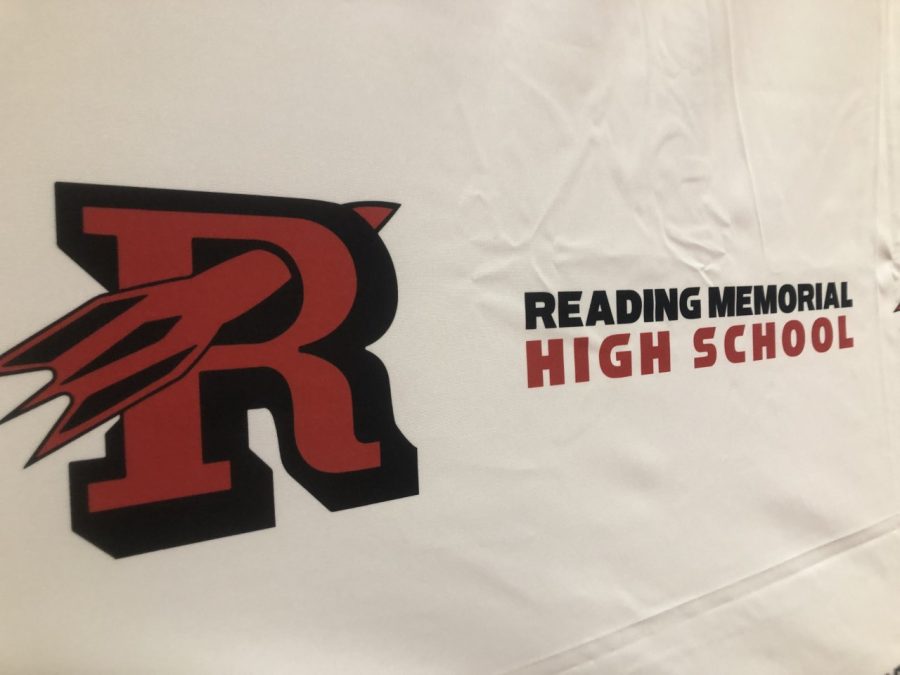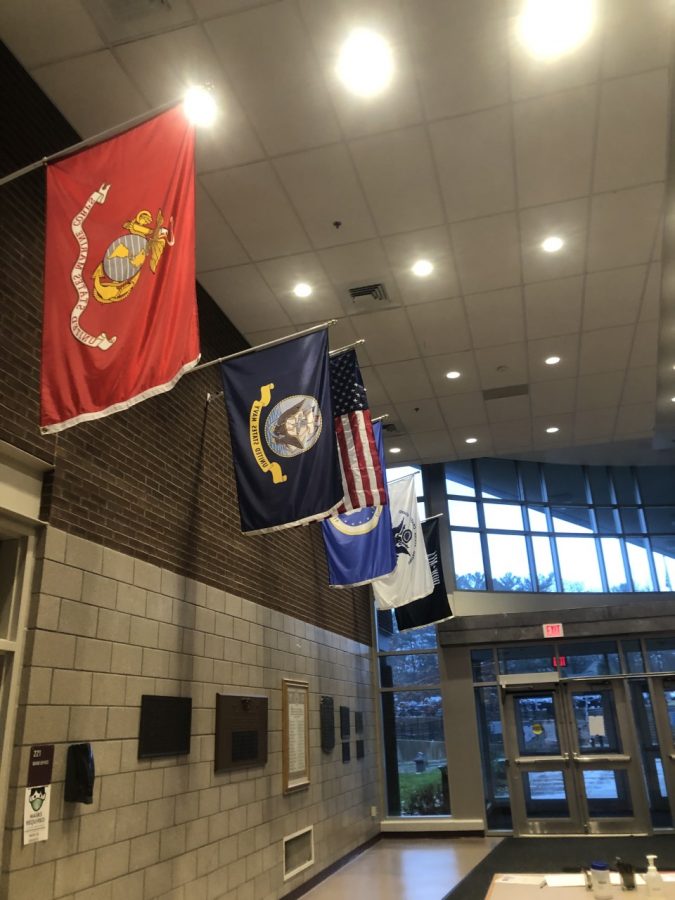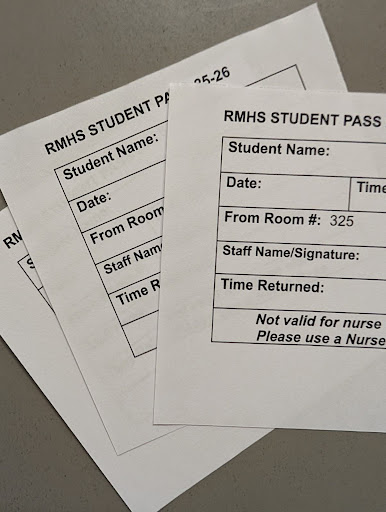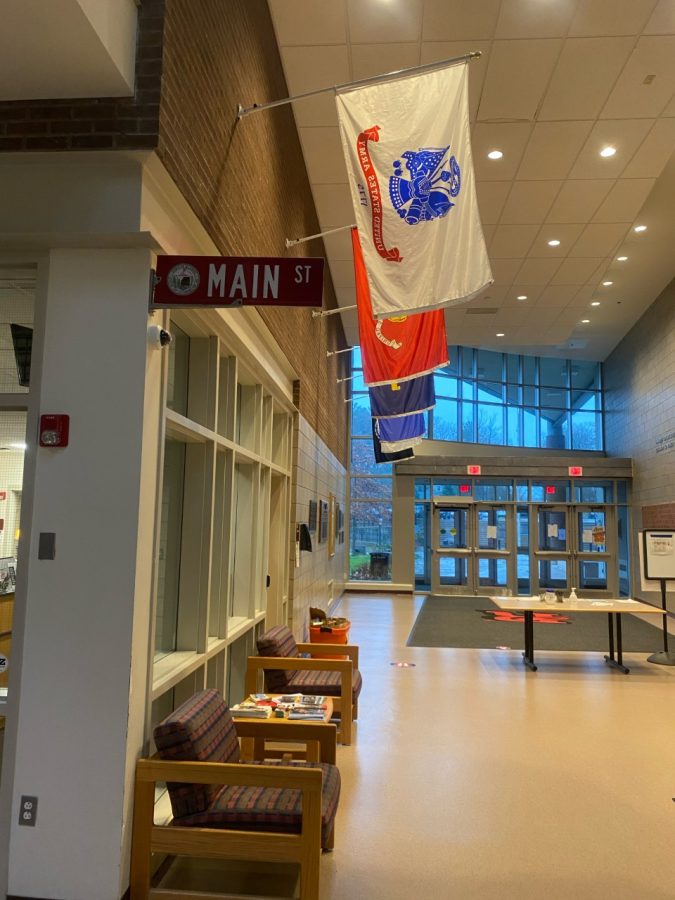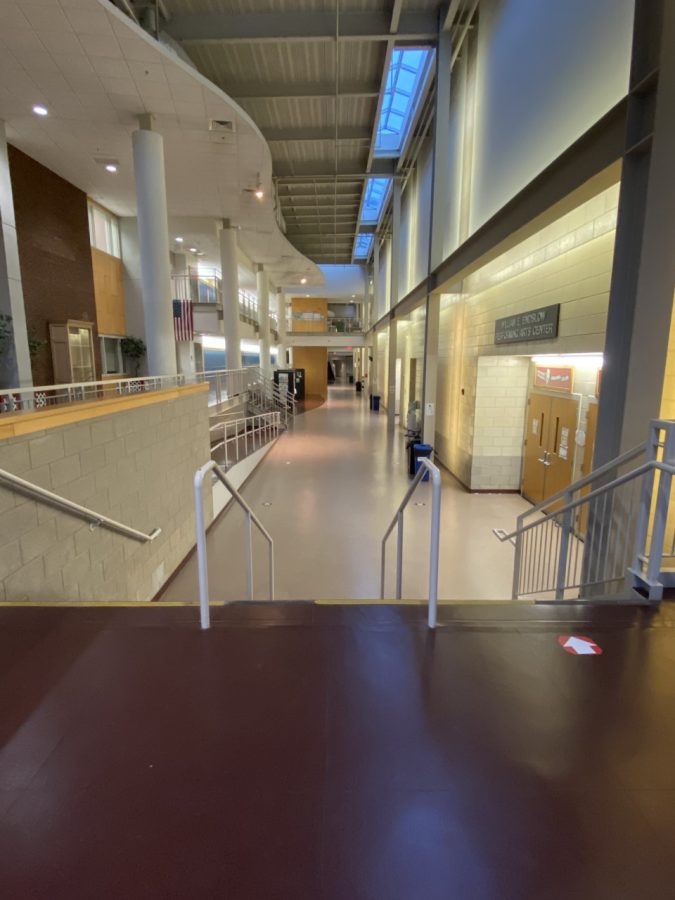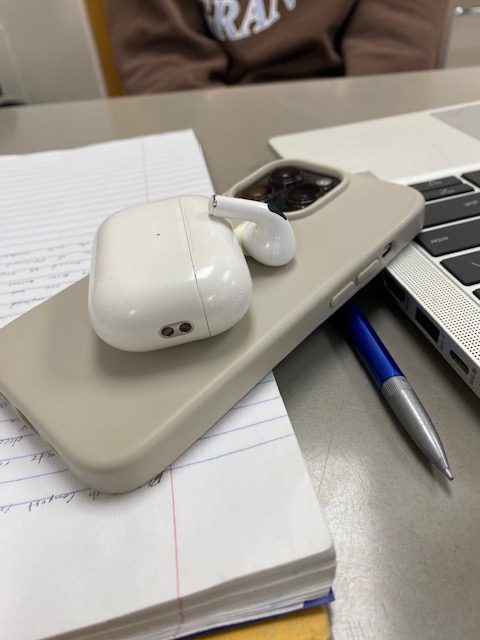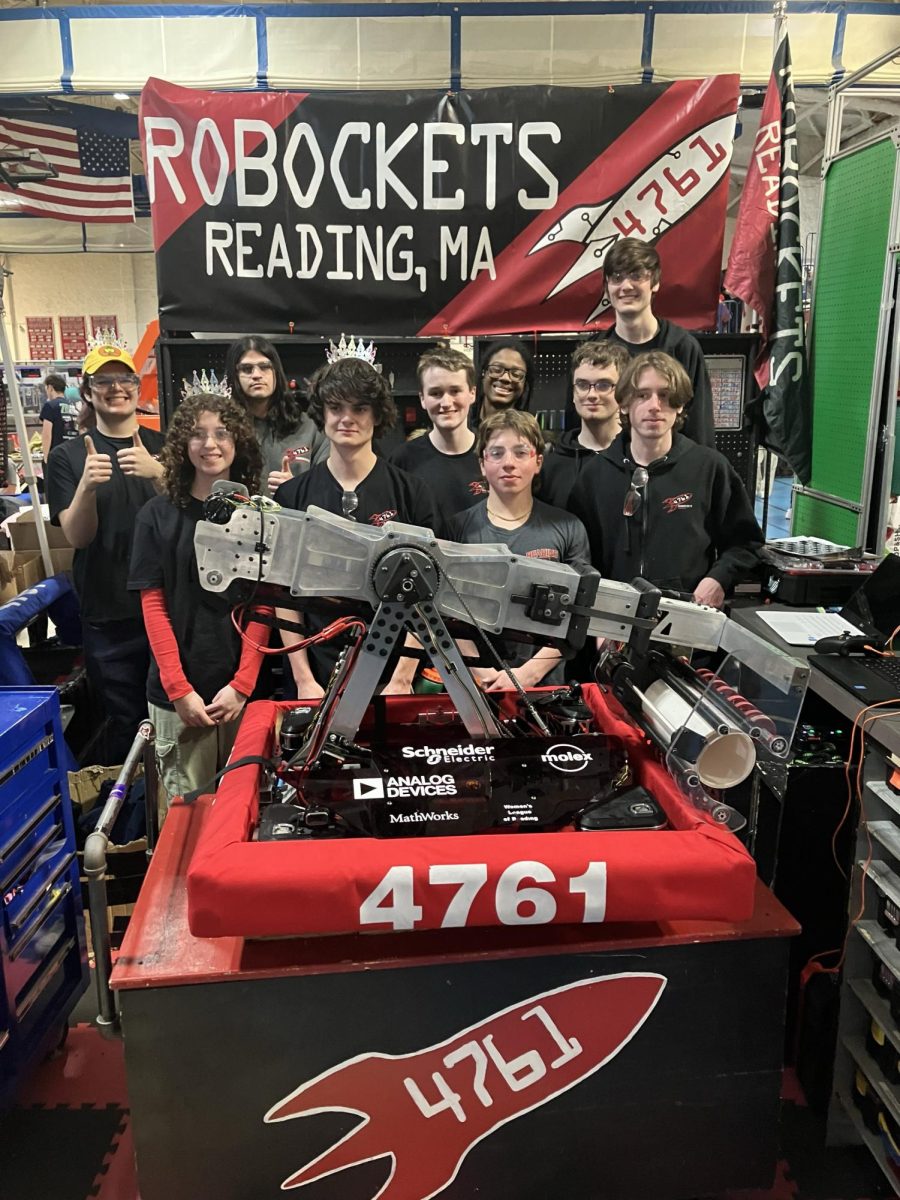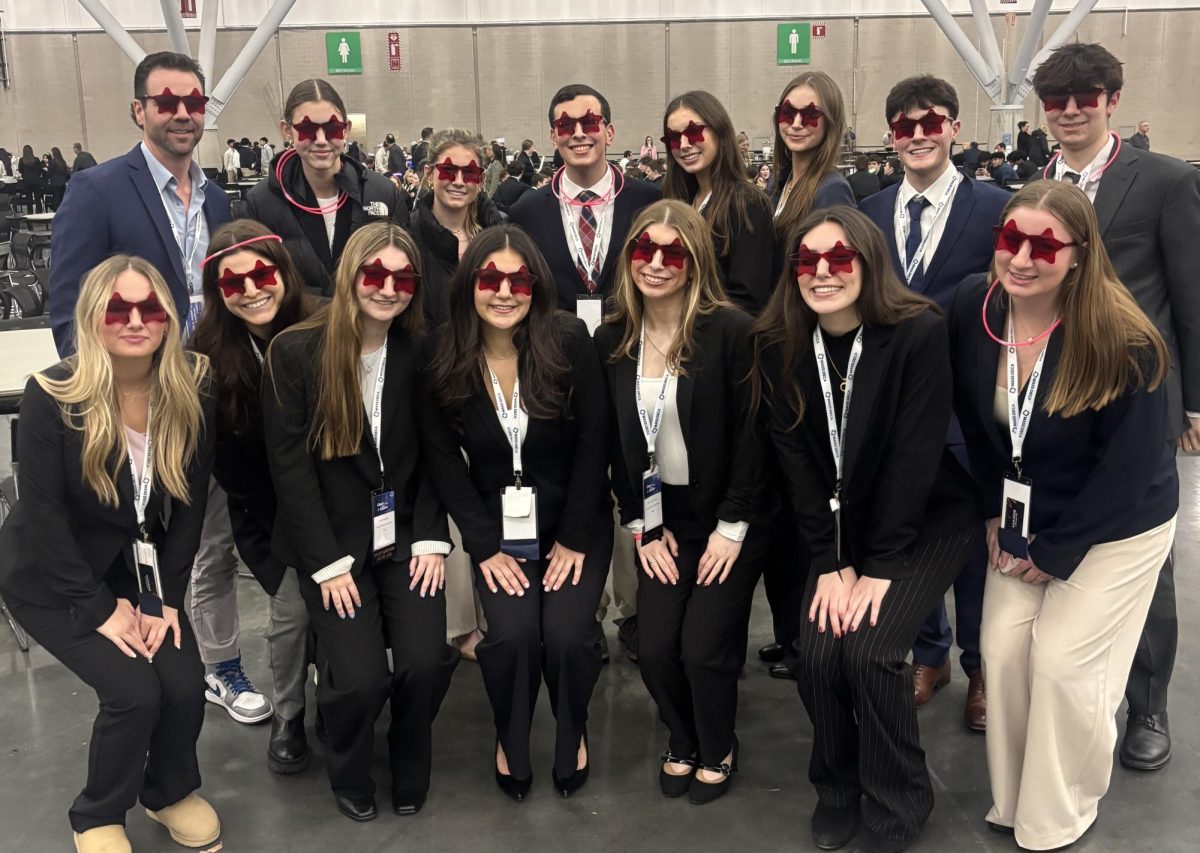
There are currently 161 seniors out on internships, with roughly 100 remaining in school full time. Approximately half of those remaining are seniors who were unable to make an internship work with their schedule of AP classes, which they had to attend until their respective AP exams.
The others still here are seniors who either didn’t or couldn’t find an internship and those who didn’t qualify for one due to grades or absences.
The seniors that don’t have internships have faced the issue of having one to five person class sizes, sometimes with little to no coursework to complete. This has led to many hours of sitting on phones in classes scrolling until 3pm.
Some classes have attempted to continue with the curriculum, but many students have felt burnt out, and left out of the opportunity to go on internships. The seniors who are attending all of their classes have to be in school for 32.5 hours per week in addition to completing homework outside of school, while their interning peers are only required to spend 20 hours per week at their internship sites.
Admin Opinions
Assistant Principal for seniors Ms. Buckley feels that there were ample opportunities for students to secure internships if they wanted one. She said that there were “likely a few kids that wanted an internship that either started too late or didn’t do the action steps that they needed” and that “one part of getting involved in the internship program are those networking skills and like utilizing resources in order to secure internships.”
If those students felt left out or frustrated with having to be in school, Mrs. Buckley said, “I think that they should [have done] an internship.”
She admitted, though, that not all students who remain in school simply failed to procure an internship and instead couldn’t get one due to AP classes. In response to concerns about the workload equitability of those that are on internship vs. those still going to school because of AP classes, Ms. Buckley said that in future years they plan to address that issue.
“What we’ll probably do is [have] shorter hour requirements for those kids so that they can do both,” she said. This would hopefully allow more students to do internships and not be confined by their schedules.
Ms. Buckley said that the administration has considered possible alternatives to internships for students who can’t or don’t get one. She said that they will have “Capstone experiences for [students in] Innovation Career Pathways”; however, that program only started a few years ago and doesn’t apply to current seniors or even next year’s senior class.
Rather than viewing going to school as a punishment for not getting an internship, Ms. Buckley believes that the smaller classes left behind after internships are a great opportunity to “delve a little bit deeper into the topics that they’re really interested in” and that they are just smaller classes that still hold the same worth as a full class.
Senior teachers have to adjust
Students are not the only ones affected by this drastic change in class sizes; teachers of all or mostly senior classes have to adapt to a very different learning environment than in the previous quarter.
Ms. Woodworth, who teaches senior Film and Literature, sees the challenges of having these classes. She explained that with English elective classes being only one semester long, “[students are] really only getting half the class, so they’re missing out on curriculum.” She also added that with the people that are left, the smaller class sizes are difficult because some people aren’t motivated. She said, “It’s pretty difficult to get a discussion going, or for people to chat or ask questions, so it can make the classes left behind just feel pretty awkward.”
Ms. Cunningham, who teaches senior Horror and Fear in Literature, on the other hand, sees the benefits of having a very small class. With having six kids in each class, she enjoys that she can know the students better and understand what it is they need or want to do, which is just something that is a lot more difficult with a bigger class. Ms Cunningham also added, “If the students want to be in the class and are interested in the topic, it’s not really a problem.” In her experiences, they chose the specific English elective because they are interested in the topic.
Ms. Griffin-Roland, who teaches precalc, doesn’t want the kids to think that classes are a joke now, and wishes that she could combine her two small classes to make it seem as if it was a normal sized class. She also explained, “There’s a different energy, because some of the seniors feel a little bit left behind and regretting that they didn’t do an internship, or stress that they still have APs.”
Voices of remaining seniors
Senior Viola LaFrancesca had too many AP classes to make an internship work for her, though she did want to do one if she could have. She said, “I think it would have been a really nice experience, exposing me to future work that I might do.”
Senior Erica Malone also had too many AP classes to do an internship and instead “really wanted to focus on getting fours and fives on the AP tests for college credit.” Similarly, Senior Vivan Bateman had 5 AP classes, and “could only do an internship for two hours” a day. Instead, she chose to do an internship on her own, not managed by the school.
Dean Iosua (‘25) could have fit an internship into his day, but he decided not to do an internship because he said, “I already have a job” and “it seemed that it was a lot that I didn’t really want to deal with.”
Both LaFrancesca and Malone said that their classes are much smaller compared to before. Malone added, ”Most of my non AP classes are 10 kids or smaller. My smallest one is three people. “
LaFrancesca had a similar experience with her classes. “ I think my biggest is around 10 kids,”
Bateman said her gym class has five people, and “We don’t really do anything so it’s pointless to be there.”
Iosua said his classes are “5 to six people”, but he said, “I personally enjoy it… it’s been real quiet.”
In terms of their current workload in their classes there have been differing experiences from students.
LaFrancesca said the workload isn’t any easier or harder. “In some of my classes we do more projects than tests, but most of them, the workload is about the same,” she said.
Malone on the other hand said, “I think the teachers have gotten a lot more chill, especially my English teacher with only three of us in there.“ Iosua also stated that the workload has “significantly dropped… we haven’t really had a test [since internships began].”
Students also differ their opinions on the workload at school in contrast to other students who are doing internships.
Malone stated, “I think I’m probably doing less work because some of them have to go in all day for their internships. But I feel I have a lot more free time now that my classes are smaller.” Iosua agreed: “I think I definitely wake up earlier than they do, but over the course of the day, they definitely work and try a lot harder.” Coming to school these weeks, he said, “I just kinda go in and if there’s work to do I do it and if not, I just sit there on my phone.”
LaFrancesca believes she has “Definitely more” work than her interning peers. Bateman agreed: “A lot of people are just working at their jobs. It’s not a [real] internship.”
Several seniors thought a different experience for non-interns would be better in the future. “I think an alternative would be a good idea. I think it would be nice to be able to do something while not really being on an internship,” said LaFrancesca.
Malone has a specific suggestion: “I think doing something with teachers would be great, especially, there’s different types of teachers. So I want to study business, so I could do something with Mr. McCarthy. But if you want to become a math professor or English [professor], you could do something with those teachers as well.”
Bateman said she’d rather do “independent work [so] you could choose not to come in” than having to attend class every single day.
An anti-climactic goodbye
Ms. Woodworth thinks there’s another downside to having only a few seniors at the end of the year:
“It’s kind of sad in some ways… because with the internships, there’s not a lot of build up to seniors’ last day. So it is just kind of like a different emotion, just one day kids are here, one day they’re not, and there’s no goodbye.”
Ms. Griffin-Roland agrees and hopes the administration will consider something new for next year. “It would be interesting to see if there would be another way to engage [seniors], where they could be working collaboratively here, or their on-campus internships, so that way they wouldn’t have to go to regular class,” she said.
She said, “We want to make sure that kids feel like they’re they’re here, and it’s not pointless that they came in, that they’re continuing to learn something, but not so rigid that it feels like we’re not taking into account that there is a totally different dynamic change.”




